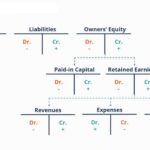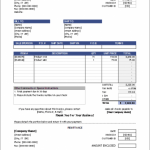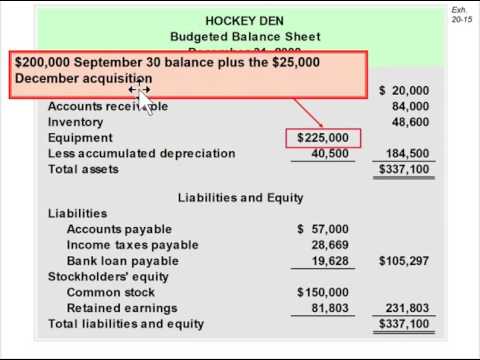
In this course, students learn how to use and operate QuickBooks and other accounting software. The course covers how to process payroll and banking information, track business expenses, how to calculate a trade discount and practice sales transactions. Potential employers will be looking closely to see who has the most experience and the most relevant skills for their specific organization.

Time management skills
Get insider insight and expert advice on navigating the competitive field of accounting and landing the perfect job for you. Becoming an accountant starts by earning a degree in accountancy that teaches you both the technical and soft skills you need to land a solid job. https://www.business-accounting.net/list-these-monthly-expenses-in-your-budget/ Ottawa University offers online accounting concentrations in Actuarial Science, Economics, Finance, and Leadership and Management to complement your degree. Our online degrees in accounting are made up of 8-week courses that allow you to expedite your education.
Preparing and Reporting on Financial Statements
These are some key skills for an accountant that should be considered before going into the profession. Employers often look for these top skills, making them important to understand and hone in, on top of an accounting degree from a credible school. “As an accountant, you will likely have many writing tasks to do on a daily basis,” Allec says.

Eleven – From Days to Minutes by Automating E-Wallet Reconciliations
In addition to accounting skills, a concentration in information systems prepares students to integrate technology into business processes, including designing accounting information systems and managing data. This concentration prepares students to become internal or external auditors. An accounting degree prepares you to speak and understand that language, whether you pursue accountancy, auditing, sales management, advising or one of the many other accounting career paths.
How long does it take to complete an online accounting degree?
The total rewards perspective integrates tangible rewards (e.g., salary, bonuses) with employee benefits (e.g., health insurance, retirement plan) and intangible rewards (e.g., location, work environment). This perspective allows students to use all forms of rewards fairly and effectively to enable job satisfaction and organizational performance. Students will learn principles of individual taxation and how to develop effective personal tax strategies for individuals.

Career In Accounting: Top 10 Key Skills Needed
Every accountant, auditor and financial analyst should stay up to date with current best practices in the field. To go the extra mile, consider reading up on emerging trends, such as how cloud computing and blockchain technologies affect accounting. The needs of a business can change quickly — companies can grow or shrink instantly.
While a bachelor’s degree is typically required to become a personal financial advisor, on-the-job training is typical to build your competency. Earning the Certified Financial Planner https://www.kelleysbookkeeping.com/ designation can build your credibility and increase your reputation and client base. However, some employers may prefer candidates with a master’s in business administration (MBA).
- Key examples include financial analysis, critical thinking, collaboration, and confidence with specialized financial software platforms.
- This course guides students in analyzing processes, managing quality for both services and products, and measuring performance while creating value along the supply chain in a global environment.
- Seek an experienced accountant with whom you can rely on for assistance and advice.
- If you are pursuing a four-year degree in accounting, you will take many accounting courses that will prepare you for your career.
Additionally, many chief financial officers (CFOs) at publicly traded companies begin their careers as auditors; as chief executives, CFOs earn a median annual salary of $206,680, per the BLS. Most accountants obtain their job by first earning a bachelor’s degree in accounting from an accredited university. This degree provides them with foundational knowledge, including the necessary skills of an accountant. As a member of Intuit’s Talent Community, you’ll have access to a wealth of industry information, from job openings to educational resources. You can even network with other professionals in your field who share your passion for helping others. Our guide to accounting careers covers everything from majors in this field to necessary education and skills.
Both verbal and written communication skills are critical for success in any accounting role. Effective communication is essential to all business roles, accountants included. The stereotypical idea of an accountant may bring to mind a person who’s glued to a computer screen full of datasets, but in reality, the job involves much more than that. Accountants enjoy steady demand, and this evolving field is only becoming more competitive to enter.
This can enable you to tie your efforts to the value you bring to the organization and help foster important working relationships. Virtually all business professionals can benefit from learning the language of finance. Financial forecasting refers to the ways a business predicts future revenue, cash flow, and expenses. Businesses use forecasts to budget and plan for the future, as well as to offer insights to investors in financial reports. Regardless of your industry or role, your career is guaranteed to be influenced in one way or another by finance and accounting. With advancements in software, cloud computing and automation, accountants are working with new technologies all the time.
Be sure to check with the AICPA and your state CPA society for scholarship opportunities! Both are a great resource for students and can provide a pathway to industry professionals. In addition to scholarship opportunities, many state societies also offer free student memberships and networking events. As part of this program, you will develop a range of valuable skills that employers are looking for.